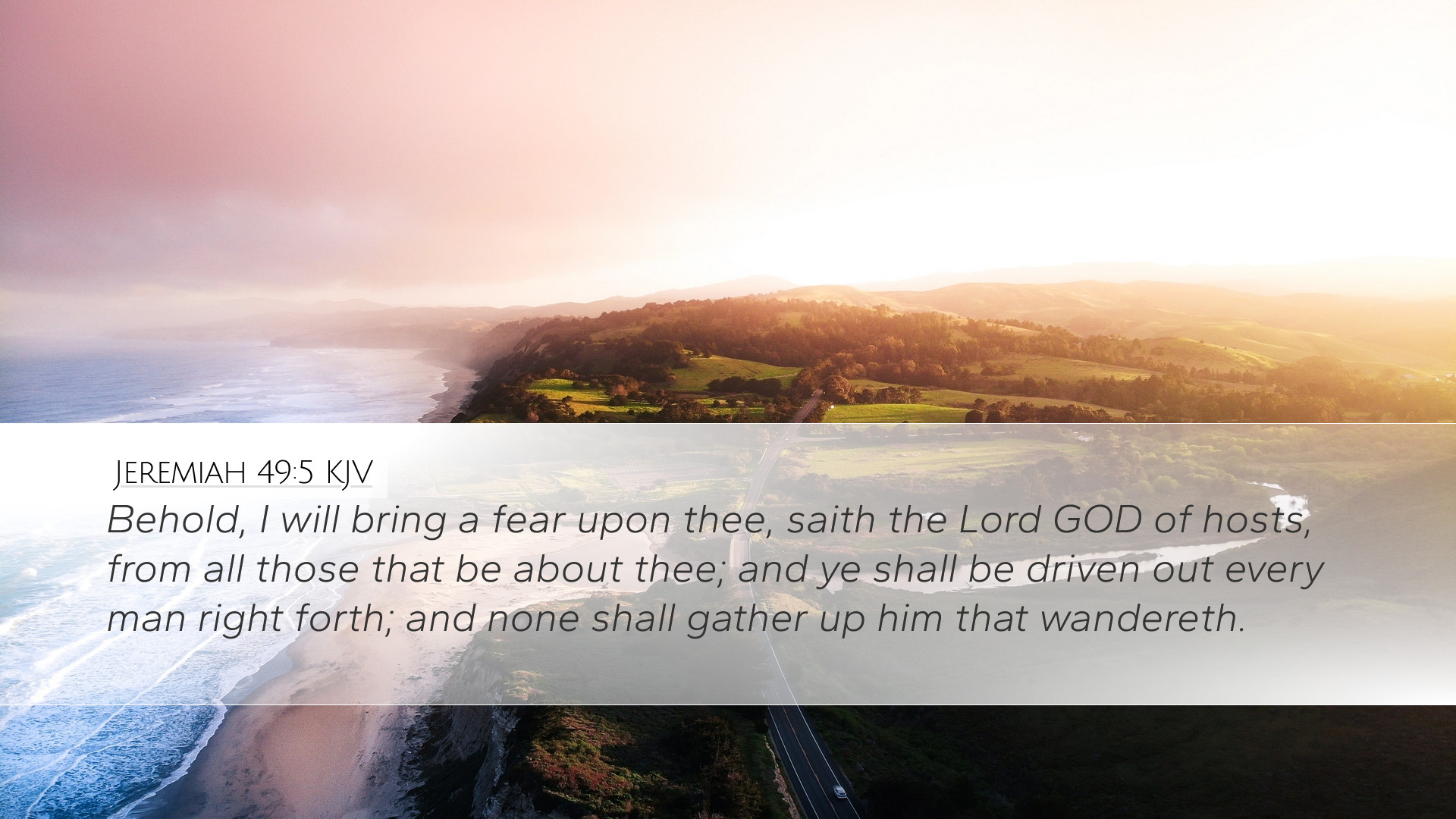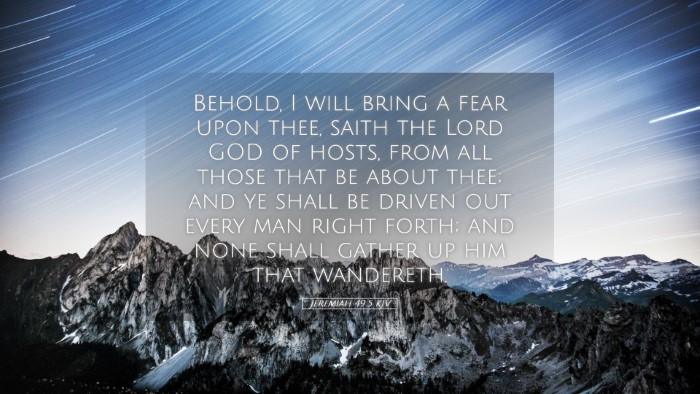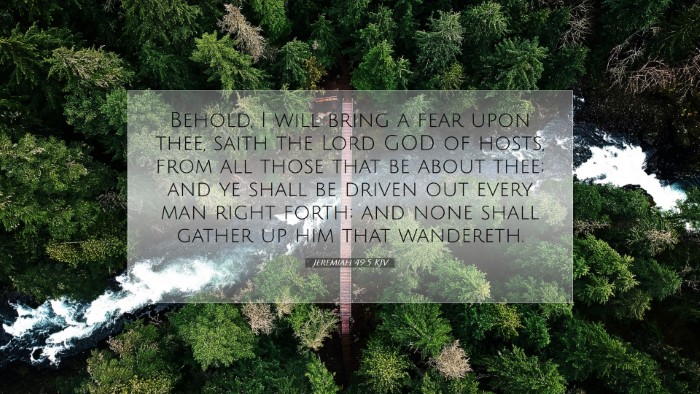Commentary on Jeremiah 49:5
Jeremiah 49:5 (KJV): "Behold, I will bring a fear upon thee, saith the Lord God of hosts, from all those that be about thee; and ye shall be driven out every man right forth; and none shall gather up him that wandereth."
Introduction
The book of Jeremiah serves as a profound prophetic message highlighting God's judgment, the call to repentance, and the promise of restoration. In this context, Jeremiah 49:5 addresses the fate of the people of Edom, symbolizing the inevitable consequences of pride and rebellion against God. This passage should ignite a reflection on divine justice and human vulnerability.
Contextual Background
Jeremiah prophesied during a turbulent time in Israel's history, characterized by impending Babylonian exile and the rise and fall of neighboring nations, including Edom. The Edomites, descendants of Esau, regarded themselves as secure in their mountains, oblivious to the impending doom foretold by the prophet. Understanding the historical context is vital for interpretation, as it reveals the socio-political landscape of Judah and its surrounding nations.
Theological Insights
This verse provides rich theological insights into God’s sovereignty and the nature of divine justice. It emphasizes the seriousness of divine retribution against nations that oppose God's will.
1. Divine Fear as Judgment
The phrase "Behold, I will bring a fear upon thee" signifies that God Himself is the source of this anxiety. It underscores God's active role in judgment. Matthew Henry observes that this fear shall arise not only from the threat of immediate dangers but also from a profound internal disquiet, causing utter chaos among the people of Edom.
2. The Nature of Desperation
Jeremiah presents a grim picture of desperation where "ye shall be driven out every man right forth." This is a vivid portrayal of a sudden and irrevocable loss of stability and security. Albert Barnes adds that the "driving out" indicates an overwhelming force that impedes any organized resistance. It reveals the futility of relying on human strength in the face of divine will.
3. Community and Isolation
Moreover, the phrase "none shall gather up him that wandereth" highlights the isolation that results from divine judgment. Adam Clarke notes this paints a picture of communal destruction wherein individuals strive for safety but find themselves alone and vulnerable. This evokes an understanding of communal responsibility in times of crisis.
Interpretative Perspectives
This verse can be viewed through various interpretative lenses, providing richer insights into its implications for contemporary readers.
1. Prophetic Fulfillment and Historical Realities
The fulfillment of Jeremiah's prophecies serves as a cautionary tale for nations today. The Edomites, characterized by arrogance and antagonism towards God's chosen people, faced swift judgment. Historical contexts elucidate how the power of God transcends political or military prowess.
2. The Nature of Fear and Its Consequences
In a broader theological context, the fear invoked by God is not merely for punishment; it acts as a call for self-examination and repentance. Pastors and theologians can draw parallels to today’s struggles, exhorting believers to confront societal complacency and seek genuine faith.
Practical Applications
This passage can serve as a compelling reflection point for personal and communal spiritual health.
1. Embracing Vulnerability
Believers are reminded of their dependence on God, particularly in moments of unrest. Recognizing human limitations can lead to greater faith and reliance on God’s omnipotence.
2. The Importance of Community
Jeremiah 49:5 serves as a stark reminder of the need for community support in turmoil. The call for collective prayer and accountability is essential for spiritual resilience.
3. Advocacy for Justice
For pastors and church leaders, the implications of divine justice underline the importance of advocating for righteousness in society. Engaging with issues that reflect God’s character can help communities navigate their moral compass amid challenges.
Conclusion
In summary, Jeremiah 49:5 transcends its immediate historical setting, offering timeless truths about divine judgment, the nature of fear, and the necessity of community in times of crisis. As a lens through which to view both historical and modern contexts, it challenges believers to remain steadfast in faith, explore the depths of divine providence, and engage in the pursuit of justice and communal well-being.
Further Reflection
As congregations engage with this text, they are encouraged to reflect on their own vulnerabilities and to seek God’s guidance in the face of fear. The assurance is that, just as God spoke through Jeremiah to the people of Edom, He desires to speak to us today, offering hope, direction, and a call to righteousness.


